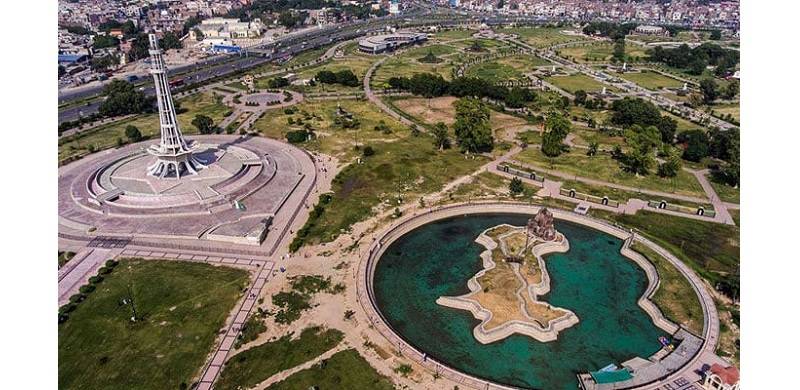
The Lahore High Court has suspended work on the city's masterplan 2050 over a plea that the 'developer mafia' was behind the approval of the development plan, it emerged on Tuesday.
The decision was issued by the Justice Shahid Karim while hearing the plea filed by a citizen, Mian Abdul Rehman.
The citizen, in his application for the court, had contended that the city's agricultural land was shown as an urban area for the sake of the plan. He alleged that the developer mafia was behind getting the plan approved.
The learned judge expressed his concerns for the safety of the city's dwellers in wake of the rising smog, which he said had "made it difficult for the residents to breathe".
Justice Karim observed that the government wasn't taking interest in controlling the smog situation.
Subsequently, the court put off the said plan and issued notices to the chief secretary, DG LDA, secretary environment and others.
According to a report, the recent figures of the Air Quality Index due to smog, not only indicate the despicable state of our atmosphere’s health, but are also crying out over the urgent need to revisit our urban planning policies.
If 2022 has taught us anything, it is that ignorance in tackling climate change will lead to unprecedented suffering for our population, yet our country’s leadership turns a deaf ear to it.
The pathology of mobility in Pakistan is undoubtedly exclusive and destructive; however, if concrete measures are taken, Pakistan can be made a better place to live and commute for all. This involves both the state to recognise its goals and act accordingly, and for people to revisit their lifestyles.
The need to tackle the climate crisis and atmospheric pollution in our cities cannot be fulfilled by closing schools for a few weeks; it can only be dealt with by calculated policy-making and its consistent implementation, which is possible only via strong and empowered local governments.
It is evident that unless we design a decentralised governance model and a sustainable way to live and commute, the dream of an inclusive, green city with clean air will remain elusive in Pakistan.
The decision was issued by the Justice Shahid Karim while hearing the plea filed by a citizen, Mian Abdul Rehman.
The citizen, in his application for the court, had contended that the city's agricultural land was shown as an urban area for the sake of the plan. He alleged that the developer mafia was behind getting the plan approved.
The learned judge expressed his concerns for the safety of the city's dwellers in wake of the rising smog, which he said had "made it difficult for the residents to breathe".
Justice Karim observed that the government wasn't taking interest in controlling the smog situation.
Subsequently, the court put off the said plan and issued notices to the chief secretary, DG LDA, secretary environment and others.
According to a report, the recent figures of the Air Quality Index due to smog, not only indicate the despicable state of our atmosphere’s health, but are also crying out over the urgent need to revisit our urban planning policies.
If 2022 has taught us anything, it is that ignorance in tackling climate change will lead to unprecedented suffering for our population, yet our country’s leadership turns a deaf ear to it.
The pathology of mobility in Pakistan is undoubtedly exclusive and destructive; however, if concrete measures are taken, Pakistan can be made a better place to live and commute for all. This involves both the state to recognise its goals and act accordingly, and for people to revisit their lifestyles.
The need to tackle the climate crisis and atmospheric pollution in our cities cannot be fulfilled by closing schools for a few weeks; it can only be dealt with by calculated policy-making and its consistent implementation, which is possible only via strong and empowered local governments.
It is evident that unless we design a decentralised governance model and a sustainable way to live and commute, the dream of an inclusive, green city with clean air will remain elusive in Pakistan.

